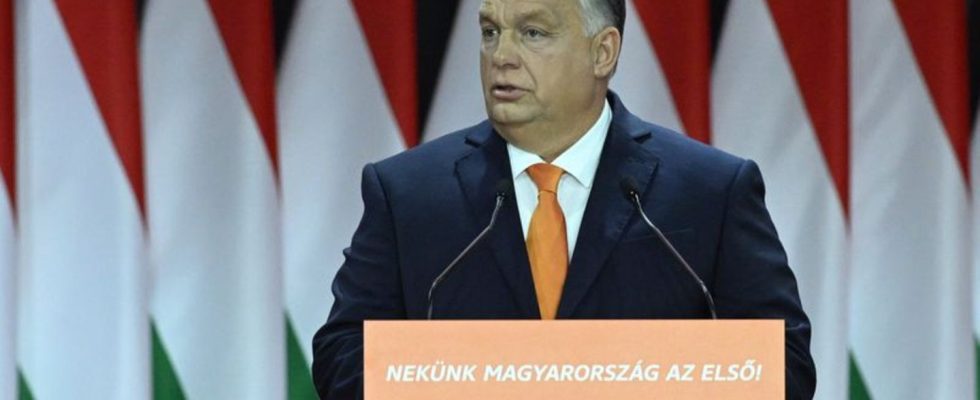Finance
EU Commission releases blocked billions for Hungary
Will the release of the funds have an impact on Viktor Orban’s threatened blockade at the EU summit? photo
© Szilard Koszticsak/MTI/AP/dpa
Brussels and Budapest have been arguing over the state of justice in Hungary for years. Now the EU Commission is accommodating Hungary’s President Orban – shortly before the EU summit on Ukraine.
The European Commission is releasing ten billion euros in frozen EU funds Hungary free – despite ongoing criticism of the rule of law in the country. The Brussels authority justified the move by saying that Hungary had met the necessary requirements. Other budget funds amounting to almost twelve billion euros as well as billions in Corona aid remain blocked.
EU Justice Commissioner Didier Reynders said that Hungary had met all agreed requirements with the recent judicial reforms and that there were now sufficient guarantees to say that the independence of the judiciary in Hungary was being strengthened. However, today’s decision is not the end of the process. We will continue to monitor the situation closely and react early if there are any setbacks.
Veto threats from Hungary
It is now eagerly awaited whether the release of the funds will have an impact on the blockade threatened by Hungarian Prime Minister Viktor Orbans at the upcoming EU summit.
At their summit on Thursday and Friday in Brussels, the heads of state and government of the European Union want to decide on the start of EU accession negotiations with Ukraine. The meeting will also discuss the processing of the long-term EU budget for the period 2021 to 2027. However, Hungary has threatened to veto both issues.
Orban argued that the EU Commission’s proposal to start accession negotiations was not compatible with a summit decision from June 2022.
He was alluding to the fact that the Brussels authorities recommend the start regardless of reform requirements that have not yet been fully met. However, the summit decision states that further steps in the accession process should only be decided when “all of these conditions have been fully met”.
This applies regardless of the fact that the start of EU accession negotiations would primarily be a symbolic step, as the talks are likely to last for many years and Ukraine’s accession before the end of the Russian war of aggression is considered impossible. He described the Commission’s budget proposal as insubstantial, unbalanced and unrealistic.
It recently remained unclear whether Orban only wanted to increase the pressure to get the frozen funding for his country. Some EU diplomats believe this is conceivable, others point out that Orban recently claimed that he would not give in on the Ukraine issue even after funds were released.
Criticism of the decision
There was sharp criticism of the EU Commission’s decision from the European Parliament. Green MP Daniel Freund said: “Today, Ursula von der Leyen is paying ten billion euros, the largest bribe in the history of the EU, to the autocrat and Putin friend Viktor Orban.” The leaders of the Christian Democrats, Social Democrats and Liberals in the European Parliament had also accused the authority of unjustly releasing the funds.
The EU Commission, on the other hand, said: If you don’t want to make yourself vulnerable, you shouldn’t continue to withhold the ten billion euros after the most recent Hungarian reforms. What is annoying, however, is that the decision now has to be made directly before the EU summit this Thursday and Friday and the impression now arises that there could be a connection with blockade threats from Hungarian Prime Minister Viktor Orban.
The EU had blocked funds amounting to around 22 billion euros due to concerns that under Prime Minister Orban, too little was being done to combat corruption and protect the rule of law. The EU Commission has been accusing Hungary of undermining EU standards and fundamental values for years. The authority launched a number of infringement proceedings and sued Hungary several times before the European Court of Justice (ECJ).

